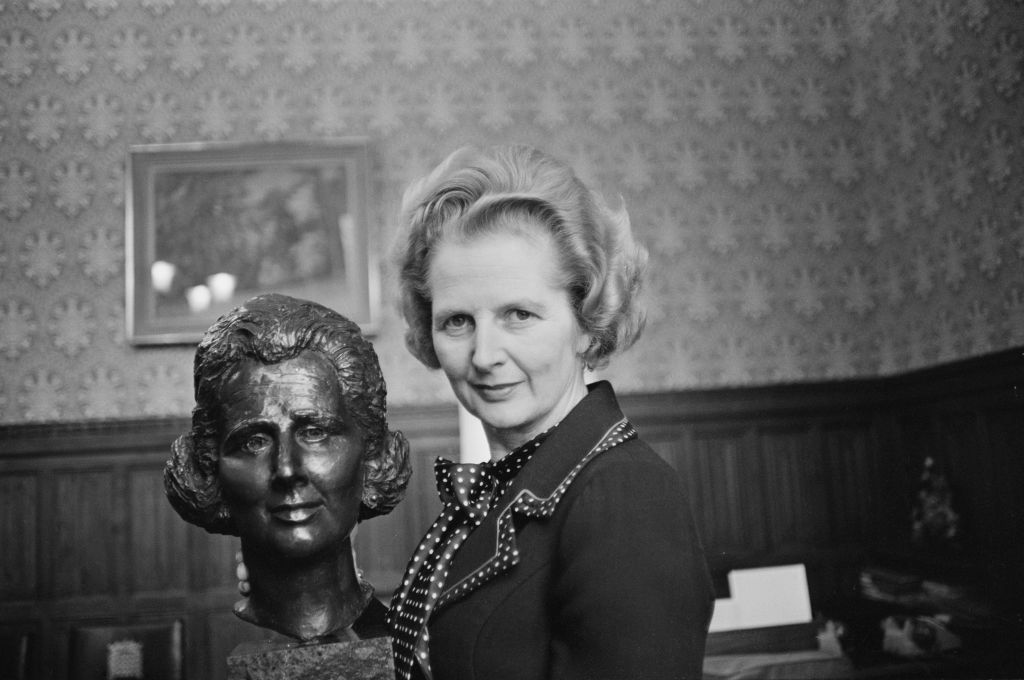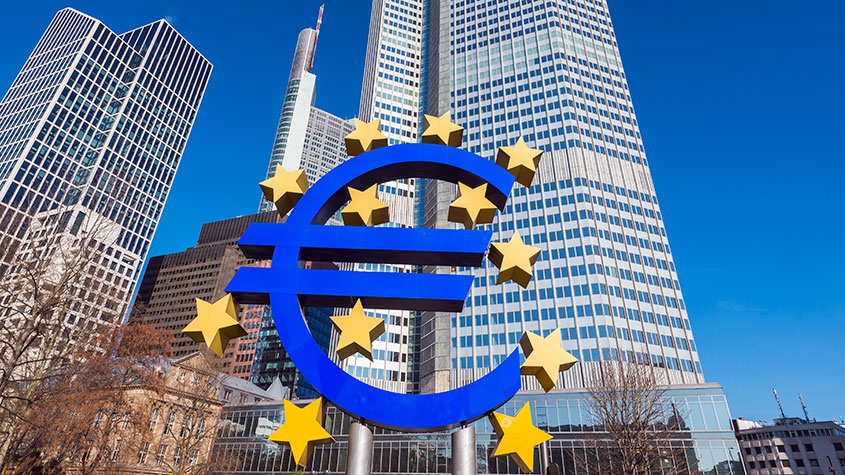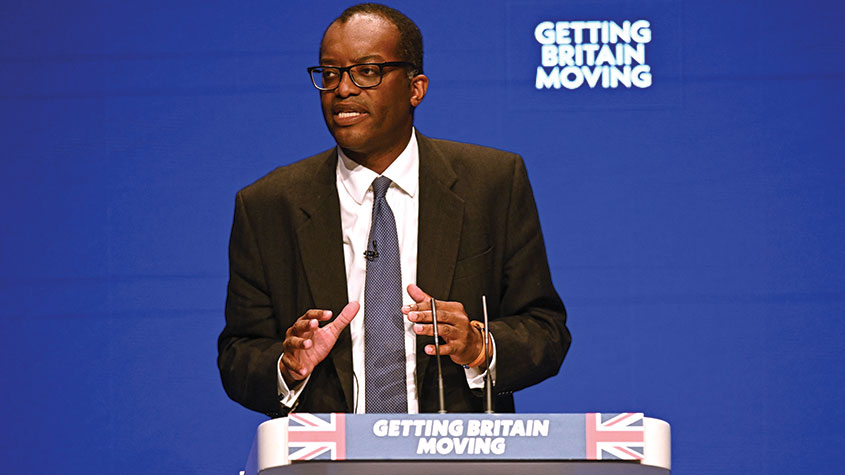Farage victory would tip the balance
A Brexit Party win may concentrate minds in parliament and break the stalemate. Emily Hohler reports.

Get the latest financial news, insights and expert analysis from our award-winning MoneyWeek team, to help you understand what really matters when it comes to your finances.
You are now subscribed
Your newsletter sign-up was successful
Want to add more newsletters?

Twice daily
MoneyWeek
Get the latest financial news, insights and expert analysis from our award-winning MoneyWeek team, to help you understand what really matters when it comes to your finances.

Four times a week
Look After My Bills
Sign up to our free money-saving newsletter, filled with the latest news and expert advice to help you find the best tips and deals for managing your bills. Start saving today!

MPs will vote on Prime Minister Theresa May's Brexit compromise in the first week of June, regardless of whether the government and Labour have reached an agreement by then, says the BBC. Downing Street says a vote on the Withdrawal Agreement is "imperative" if it is to be on the statute book before the Commons' summer recess starts in late July. If the deal is defeated and Labour says it will vote it down without a cross-party agreement the UK is set for a no-deal exit or the revocation of Article 50.
Cross-party talks, which are intended to address future EU ties rather than alter the Withdrawal Agreement, which Brussels says is non-negotiable, began in April after May's deal was rejected three times by MPs. Although May says the government would propose a close customs arrangement with the EU, Labour is seeking a permanent customs union. Senior Tories warn that if May cedes ground on this she risks losing the "loyal middle" of her party, says Sean Morrison in the Evening Standard.
Changing political landscape
May's allies believe the European elections could tip the balance. If Nigel Farage's Brexit Party takes first place as expected on 23 May, Labour MPs may be scared into backing the deal. Success for Farage would also "embolden the crash-out faction of the Conservatives", saysAndrew Rawnsley in The Observer.
MoneyWeek
Subscribe to MoneyWeek today and get your first six magazine issues absolutely FREE

Sign up to Money Morning
Don't miss the latest investment and personal finances news, market analysis, plus money-saving tips with our free twice-daily newsletter
Don't miss the latest investment and personal finances news, market analysis, plus money-saving tips with our free twice-daily newsletter
"Mass defections of Tory voters" will make the struggle to succeed May a "competition to see who can sound the most Farage-iste". The "most effective antidote" would be a "powerful result for the parties unequivocally committed to reversing Brexit" the Lib Dems, the Greens and Change UK and although it is too late for them to unite and field a common slate of candidates (which could have helped them secure ten more seats, notes Jack Maidment in The Daily Telegraph), it is "not too late to behave as friendly allies". Since the "bulk" of Labour party members and MPs are against Brexit, voting Labour will ultimately be "counted on the anti-Farage side of the ledger" too, claims Tony Blair in The Guardian. "But whatever you do, vote." This is "a vote for the Farage Brexit or against it".
For now, all Farage has to do to "harvest a large haul of votes" is to "repeatedly cry the word betrayal'", says Rawnsley. It is "pointless" to mock the Brexit Party for its lack of a manifesto. There is likely to be plenty of time for that, says Matthew Lynn in The Daily Telegraph. If May and Corbyn fail to "cook up a deal", the Brexit wrangling could drag on for years and the Brexit Party will become a "part of the political landscape".
To endure, it should come out in favour of a managed no-deal exit and prepare for "lots of side deals" from visa-free travel to customs checks, instead of "one big one". It should "go for zero tariffs" and start unwinding 40 years of EU rules that "didn't work for the UK". The Brexit Party should be pro-enterprise, pro-competition, and "realistic about helping industries and regions that get hit hardest by Brexit. Who knows, it might even be a pretty successful formula."
Get the latest financial news, insights and expert analysis from our award-winning MoneyWeek team, to help you understand what really matters when it comes to your finances.

Emily has worked as a journalist for more than thirty years and was formerly Assistant Editor of MoneyWeek, which she helped launch in 2000. Prior to this, she was Deputy Features Editor of The Times and a Commissioning Editor for The Independent on Sunday and The Daily Telegraph. She has written for most of the national newspapers including The Times, the Daily and Sunday Telegraph, The Evening Standard and The Daily Mail, She interviewed celebrities weekly for The Sunday Telegraph and wrote a regular column for The Evening Standard. As Political Editor of MoneyWeek, Emily has covered subjects from Brexit to the Gaza war.
Aside from her writing, Emily trained as Nutritional Therapist following her son's diagnosis with Type 1 diabetes in 2011 and now works as a practitioner for Nature Doc, offering one-to-one consultations and running workshops in Oxfordshire.
-
 Should you buy an active ETF?
Should you buy an active ETF?ETFs are often mischaracterised as passive products, but they can be a convenient way to add active management to your portfolio
-
 Power up your pension before 5 April – easy ways to save before the tax year end
Power up your pension before 5 April – easy ways to save before the tax year endWith the end of the tax year looming, pension savers currently have a window to review and maximise what’s going into their retirement funds – we look at how
-
 No peace dividend in Trump's Ukraine plan
No peace dividend in Trump's Ukraine planOpinion An end to fighting in Ukraine will hurt defence shares in the short term, but the boom is likely to continue given US isolationism, says Matthew Lynn
-
 Europe’s new single stock market is no panacea
Europe’s new single stock market is no panaceaOpinion It is hard to see how a single European stock exchange will fix anything. Friedrich Merz is trying his hand at a failed strategy, says Matthew Lynn
-
 Was Margaret Thatcher great for Britain?
Was Margaret Thatcher great for Britain?The 'Iron Lady’ would be celebrating her 100th birthday this month. Margaret Thatcher rose to power in 1979 as the first ever female prime minister and was one of the most controversial leaders in history, but how did her policies shape today’s finances?
-
 Britain’s inflation problem
Britain’s inflation problemInflation in the UK appears to be remaining higher for longer when compared with similar rich countries. Why? And when can we expect a return to normal? Simon Wilson reports.
-
 It’s been 16 years, but the UK economy finally has a chance
It’s been 16 years, but the UK economy finally has a chanceOpinion The UK economy has been dealing with one crisis after another since 2007. Policymakers now have a chance to fix some of the underlying problems holding back growth.
-
 Eurozone inflation hits 10.7% in October
Eurozone inflation hits 10.7% in OctoberNews Inflation across the eurozone hit 10.7% in October. What does it mean for your money?
-
 The “plan for growth”: what Truss and Kwarteng got right
The “plan for growth”: what Truss and Kwarteng got rightOpinion The Tories’ “plan for growth” has got off to a bad start, but their reforms can still transform Britain
-
 Kwasi Kwarteng U-turns on top tax rate decision
Kwasi Kwarteng U-turns on top tax rate decisionNews Kwasi Kwarteng has U-turned on his top tax rate reduction announced in his mini-Budget at the end of September.